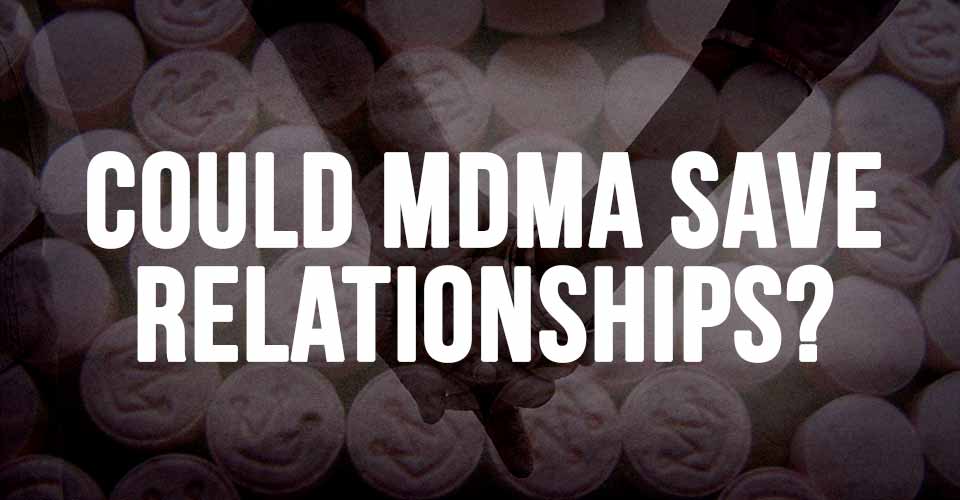
Before it was banned and categorised as an illegal substance in the USA in 1985, MDMA was frequently used in couples therapy to help couples open up and tackle heavy issues that they found otherwise difficult to communicate about. In an article published in the German magazine GEO, Oxford University researcher Brian D. Earp highlighted a few examples of researchers who used MDMA with approximately 80 clients from 1980 to 1985. Their findings indicating that individuals achieved “a more healthy and accurate perspective of who and what they were psychologically.” According to researchers, this might have been accomplished by the drug’s apparent ability, when used in combination with psychotherapy, to decrease irrational fear responses to perceived emotional threats.
The researchers went on to say that the same feelings of euphoria, emotional warmth, and empathy that made the drug beloved in clubs could help those afflicted with PTSD to re-live and reprocess traumatic events in a safe environment so that they can come to terms with those memories.
Though MDMA became a drug of abuse with no medical value under Schedule I of the Controlled Substances Act in 1985, new clinical trials exploring its use in controlled settings have begun to get approval. With the help of data sets from older trials it is finally receiving serious consideration.
MDMA—found in molly and ecstasy—earned a bad rap in the 1990s as a ravers’ drug of choice and was banned because of abuse in the party scene. In a recent Post Traumatic Stress Disorder treatment trial, 83 percent of his treatment-resistant participants no longer showed symptoms of PTSD when treated with MDMA. Psychotherapists are coming to value the way it increases empathy while decreasing fear and defensiveness. “MDMA gives people the ability to revisit an event that’s still painful without being overwhelmed,” says psychiatrist Michael Mithoefer who headed the study.
So seemingly it has beneficial result when used in small controlled doses for both couples and those affected with PTSD. Psychopharmacologist, psychiatrist, and author Julie Holland, M.D. hypothesizes that the use of MDMA on the non-affected party will inspire compassion and openness when the traumatized individual is opening up. Holland explains, “A lot of people have described MDMA as a heart-opening experience, full of empathy and compassion. You want the ‘non-affected partner’ in the couple to have that experience, as it could be exactly what’s needed to support and stabilize the patient who experiences PTSD.”
Neuroscientist and MDMA researcher Matthew Baggott highlights that there are legitimate concerns about the drug’s harmful long term effects but noted there has been little indication of problems in controlled clinical experiments. “We’ve seen people in our studies feel tired and a little emotionally unstable the next day, but they are also positive, as if they’ve accomplished something big,” he said. “We don’t see the midweek blues that users report in uncontrolled settings, maybe because we use single, modest doses and our participants are not taking other drugs.”
Baggott also suggested that the doses most recreational users ingest aren’t optimal for lasting emotional effects. “Pioneering psychedelic therapist Leo Zeff said his clients often wanted more intense MDMA experiences than they really needed,” Baggott explained. “It was as if they preferred to be pushed through to a state of bliss rather than relax into a state of clarity and then do some psychological work.” The smaller controlled MDMA doses favored by therapists in the studies are less likely to compromise the memory of the experience than the higher recreational doses. “When people take MDMA in party settings they often get so blissed out that they remember almost nothing. People at lower doses remember their thoughts and feelings and what they shared with each other,” Baggott said. “All those memories last beyond a trip.”
With the benefits of MDMA use becoming more than apparent in the lives of potential patients, perhaps it’s just a matter of time if the policies surrounding the drug steer away from fear tactics and binge culture, and move towards control and moderation to help many other people enter into a open hearted and truly healing space.


